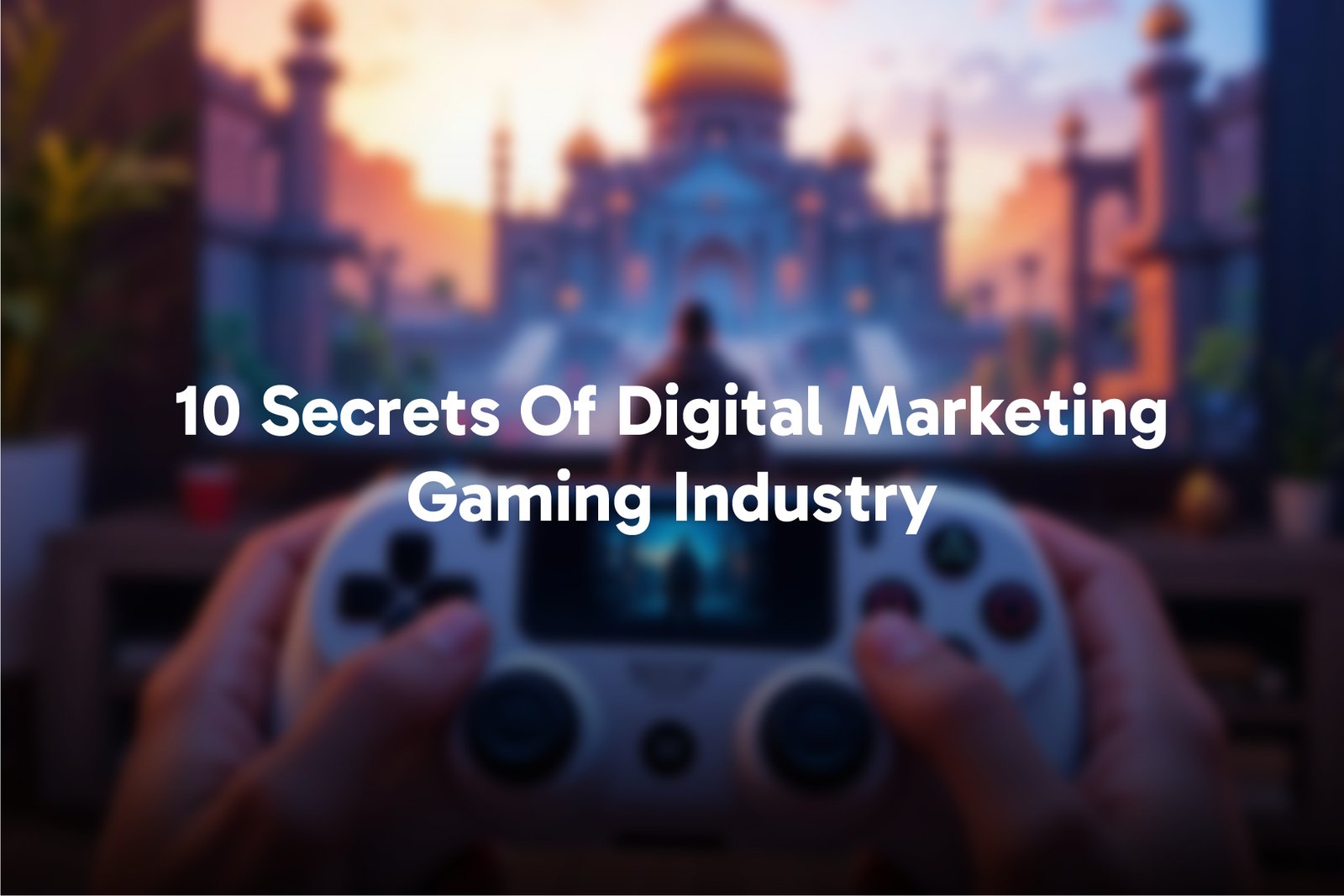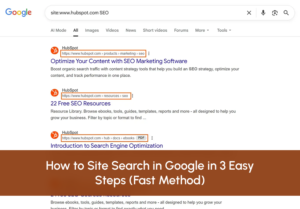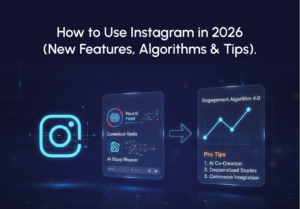The gaming industry is not small anymore; in fact, it is massive. Probably more massive than movies and music combined. Each year, millions of gamers spend entire weekends exploring worlds, competing online, and becoming members of communities that are almost like families.
And where gamers are, there are opportunities for brands. Digital marketing in gaming industry is hot now because of this very fact. But the simple truth is: games cannot be marketed in the same way as footwear, gadgets, or coffee shops. Gamers are different. They are passionate, skeptical, and sharp. If they feel something about a brand is “fake,” they will call it out on social media almost instantaneously.
So, how do you break through? Let’s dig into some secrets that make digital marketing in gaming industry truly work.
1. Know Who You’re Reaching
Gamers do not constitute one mass community; they include casual mobile users, competitive eSports athletes, RPG lovers, and simulation devotees. Each kind of gamer perceives things differently in terms of behavioral patterns, motivations, and platforms.
As you know, with any kind of digital marketing in gaming industry, knowing your target or targets is the start of your marketing strategy. In this case, research the gamers, study player behavior, and find out which communities they belong to.
Key Insight: For now, Twitch, Discord, and Reddit are the doors that open onto the meshing realities of the gamers. From there, you can track live conversations and just get the feel of the sentiment around them.
2. Leverage Influencer Partnerships
Gaming influencers can affect so much. The opinion of a trusted streamer can change the perceptions of thousands of fans of a game or product. More than any traditional ad, YouTube reviews, Twitch streams, and TikTok clips are often what’s going to make it or break it for a title.
The trick is finding the influencer who has a genuine connection with your brand. Authenticity is everything; gamers can spot a forced promotion in about two seconds flat.
Pro Tip: Don’t limit yourself to the top names; micro-influencers tend to have lower but tighter communities that usually drive greater engagement.
3. Create Immersive Content
All gamers appreciate the fact that they can enjoy an exciting story and capture the feeling of reality, so video games marketing should feel like a buying experience and not a sale. Trailers, gameplay teasers, and even behind-the-scenes videos can all capture audience attention.
Head further by making content interactive, such as AR filters, playful gamified ads, or even simple polls. Experiences that introduce oneself to marketing make it an experience; thus, gamers will probably engage more this way.
Bonus: Clips that are Short and shareable can work wonders for websites such as TikTok, Instagram, and YouTube Shorts.
4. Build a Strong Community
Gaming is for community; players commune in forums, Discord servers, and fan groups where they share tips, celebrate wins, and forge friendships. If your brand participates authentically, you can achieve long-term brand loyalty.
This includes tournaments, fan event sponsorships, and also just talking and engaging. Encourage user-generated content, memes, gameplay clips, and fan art to build organic buzz.
Idea: Develop your own branded Discord server or engage existing subreddits for deeper engagement.
5. Use Data-Driven Campaigns
Huge data sets in player behaviour, in-game actions, purchase patterns, and social media trends are all generated in the gaming world. Those brands that know how to extract information from the gaming world can refine their campaigns with the increase in ROI. Brands that can refine their campaigns effectively gained most of the profit from this data.
Hence, keep track of what sorts of content attract the most. Are gamers reacting better to jokes, trailers, or influencers’ shoutouts? Use the data to amplify success.
Tool Tip: Unity Ads, Google Ads, and Meta Ads provide insights into player behaviour and ad performance metrics.
6. Perfect Your Timing
Launch dates, patches, and tournaments punctuate gamers. Customarily, delighting in one’s digital marketing video games campaigns for these times can show utmost spontaneity and anticipation to be timely.
Launching promotions during events like E3, Gamescom, or TwitchCon can generate huge traction. Even the seasonal updates in popular games present chances of themed campaigns.
Key Insight: Avoid launching your campaign at a random time when people might not care and instead pay attention to when your audience is already interested, engaged, or energised.
7. Don’t Ignore Mobile Gamers
Mobile gaming is huge in terms of billions of active players across the world, and mobile gaming is not just a “casual” thing anymore. Rather, it is becoming mainstream. Games such as PUBG Mobile, Genshin Impact, and Candy Crush will give you an idea of a massive audience.
Ensure that your digital marketing in gaming industry strategy has been altered to market to your mobile audience as well. Mobile ads, gaming influencer marketing or collaboration, and community engagement are no less beneficial when utilised for console and PC gaming only.
Pro Tip: Mobile gamers prefer more easily digestible content forms. Make sure that your campaign is simple and quick to consume.
8. Reward Loyalty
In some way, gamers hold dear the idea of rewards, be it levelling up, skin unlocking, or achievement completion. Gaming Marketing strategies that employ the same mentality could prove to be highly fruitful.
Unique rewards tied to the gaming experience should be offered instead of just any discount. In-game items exclusive to them, early access, maybe even a fan badge.
Idea: An idea could be to treat your loyalty program like a quest; set some milestones for your players, and rewards are unlocked meaningfully along the way.
9. Think Global, Act Local
Games know no realm; they vary, but culture plays a significant role. What appeals to gamers in the U.S.A. does not mean the same in Japan, Brazil or Europe. Localisation goes far beyond translation; it is all about appreciating the nuances of cultures.
Adjusting content locally to share the jokes, platforms and trends existing there makes the campaign look authentic.
Trend Alert: Some of the biggest games now launch region-specific events, skins, or collaborations. Marketing should follow that approach.
10. Stay Ahead of Trends
The gaming industry grows at the speed of light: innovative technologies completely modify player engagement in less than a day, from AR/VR to cloud gaming and metaverse projects.
This is why the brand will always be perceived as relevant and future-centric, provided marketing predicts all these developments. Gamers respect the use of new technologies by any brand, be it NFTs, Web3, or in-game content.
Key Insight: Do not follow every trend off a cliff. Keep it in line with your brand identity and involve keen observations for gamer taste.
Final Thoughts
If you are wondering “how to market a game”, well, marketing in the gaming industry is an art and a science. Gamers want authenticity, creativity, and community, rather than forced advertisements. Brands that make it are those that listen, adapt, and make players feel part of the journey.
Knowing your audience, working with influencers, building a community, and using data to create all campaigns will raise the level of any digital marketing in gaming industry strategy.
Also, if you want to open the door to marketing in the gaming industry, then Cognitive IT Solutions is your partner. We specialise in digital marketing services that will help you build campaigns that are genuinely relevant and impactful for gamers.
Frequently Asked Questions (FAQs)
How to get into the gaming industry as a marketer?
From what I’ve seen, the best way is to start with the basics, learn marketing first. Then get real practice, even with small projects or indie games. It also helps to actually play games and follow gaming trends, so you get the culture. A polished resume matters, but honestly, showing passion and understanding of the community goes a long way.
What is the game theory of marketing strategy?
Well, think of it like playing against smart opponents. Every move you make depends on what others might do. In video game marketing roles range from managers to influencer coordinators, which involves guessing how competitors will react and how customers will respond. It’s a strategy, not just chance.
What is digital marketing in gaming industry?
Well, it’s simply how games find their players. That could be ads, trailers, influencers, or even memes. On mobile, it’s also about getting new players and making sure they stick around. Basically, it’s connecting the right game with the right people.
How to win the marketing game?
It is less about shouting “buy this” and more about connecting with people. If you can tell a story, spark emotion, or make players feel like part of something, you’ve already won half the battle.










